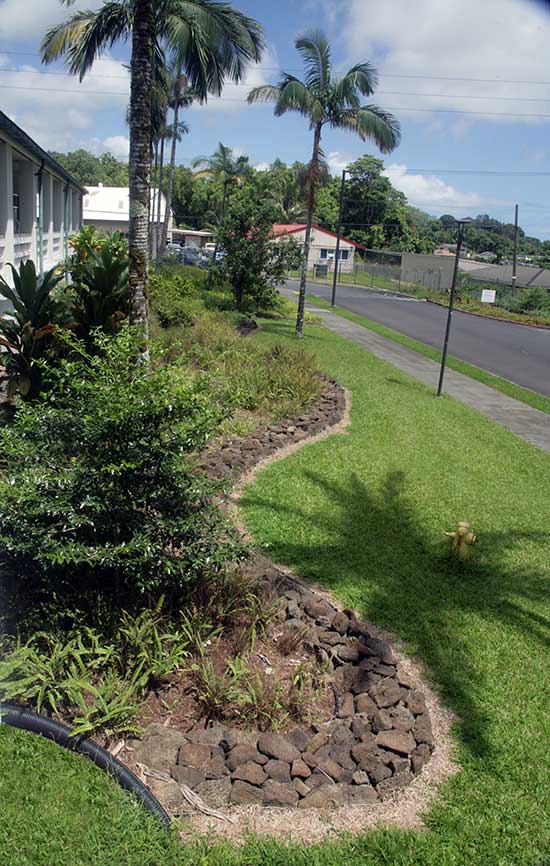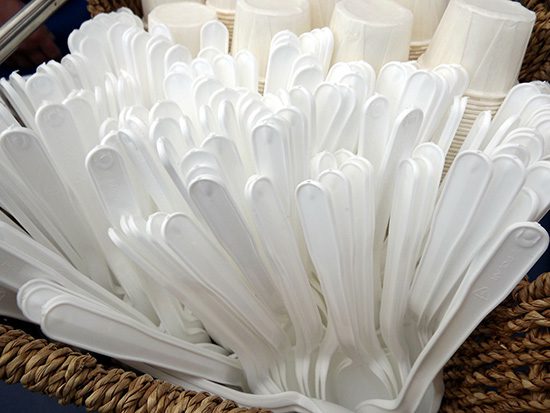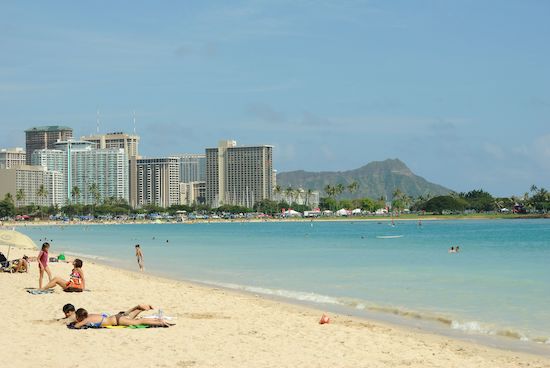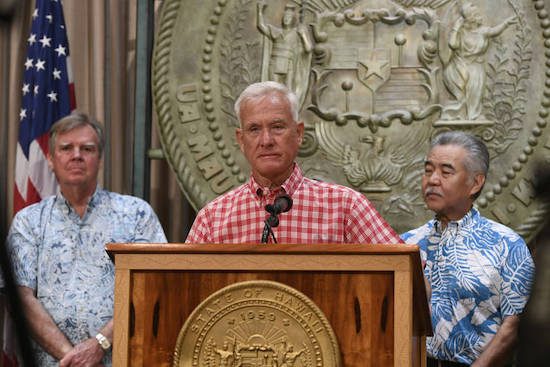
In this monthly column, anthropology instructor and faculty chair of the sustainability curriculum committee Christian Palmer shares with us his thoughts related to Hawai‘i’s environment.
Why we need ecological engineering and rain gardens
Rain gardens are an example of ecological engineering in which humans build systems that mimic natural ecosystems to minimize our impact on the environment.
Rain gardens are depressions planted with a garden to gather runoff from impervious areas like parking lots and the roofs of buildings and that allow water to soak into the ground.
By slowing stormwater runoff, the rain garden can filter pollutants, sediments and other toxins into the ground.
In an urbanized area like Kāne‘ohe, the combined total of impervious areas like parking lots, roads and buildings can have a huge negative impact on ocean water quality and reef ecosystems as runoff goes straight into the ocean.
Stream channelization, which removes the natural curves of streams and vegetation along their banks, can exacerbate this problem.
Windward Community College has a rain garden located makai of Hale `Imiloa that was built in 2014 through a partnership with Hui o Ko`olaupoko, a non-profit organization and watershed management group that recognizes the connections between the health of the land and the ocean.
The organization works to restore watersheds through ecological restoration projects and rain gardens.
Our rain garden is approximately 3,000 square feet and has 18 native plant species, although invasive weeds are always sneaking in.
Volunteers from the college and community regularly weed the garden to help the native plants better establish themselves.
WCC’s rain garden stops storm water from entering nearby Kea`ahala stream and flowing to Kāne‘ohe Bay, where sediment can damage the delicate reef ecosystems there.
For more information about rain gardens and ecological restoration or to find out how to get involved with community work days with Hui o Ko`olaupoko, go to the non-profit organization’s website at www.huihawaii.org.





